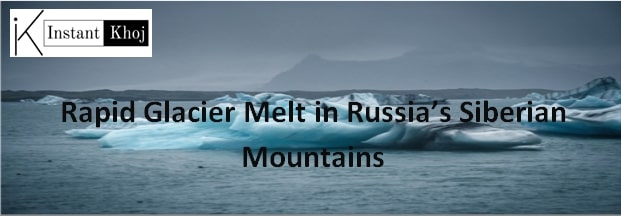Recent scientific studies have revealed a troubling trend in the Altai and Sayan mountain ranges of Siberia: glaciers are melting at an accelerated pace, much faster than earlier forecasts had suggested. This rapid glacial retreat not only serves as a stark indicator of the intensifying impact of climate change in northern Asia but also poses significant risks to local ecosystems and indigenous communities dependent on these glaciers for their freshwater supply.
The Changing Landscape of Siberia’s Glaciers
The Altai and Sayan Mountains, located in southern Siberia near the borders of Russia, Mongolia, and Kazakhstan, have long been home to vast glaciers that feed rivers critical to the region’s ecology and human populations. These glaciers act as natural reservoirs, slowly releasing meltwater that sustains rivers throughout dry seasons.
However, recent satellite data and ground-based measurements show that the volume and surface area of these glaciers have been shrinking at an unprecedented rate over the past decade. Scientists attribute this accelerated melting primarily to rising global temperatures, which have had particularly pronounced effects in high-latitude and mountainous regions.
Ecological and Social Impacts
The retreat of Siberian glaciers threatens the delicate balance of unique mountain ecosystems. As glaciers disappear, habitats for specialized flora and fauna face disruption, potentially leading to a loss of biodiversity. Furthermore, glacial meltwater is a crucial source for rivers and wetlands downstream; changes in water availability could impact agricultural activities and freshwater supplies across the region.
For indigenous communities living in and around the Altai and Sayan ranges, these changes are especially alarming. Many rely directly on glacial-fed rivers for drinking water, fishing, and traditional agricultural practices. The unpredictability of water flow caused by glacial shrinkage threatens their livelihoods, food security, and cultural heritage.
A Warning Sign for Climate Change
The accelerated glacial retreat in Siberia is part of a broader global pattern of glacier loss, signaling the urgent need to address climate change. Scientists emphasize that these mountains serve as sensitive indicators of environmental shifts. The rapid changes observed here underline the importance of monitoring glacial health and implementing climate mitigation strategies to reduce greenhouse gas emissions.
Conclusion
The accelerating loss of glaciers in the Altai and Sayan Mountains is a clear and troubling manifestation of climate change’s growing impact on northern Asia. Beyond the scientific implications, the melting glaciers pose real threats to ecosystems and the indigenous communities that depend on them. Addressing this crisis requires global attention and coordinated action to preserve these vital natural resources for future generations.



